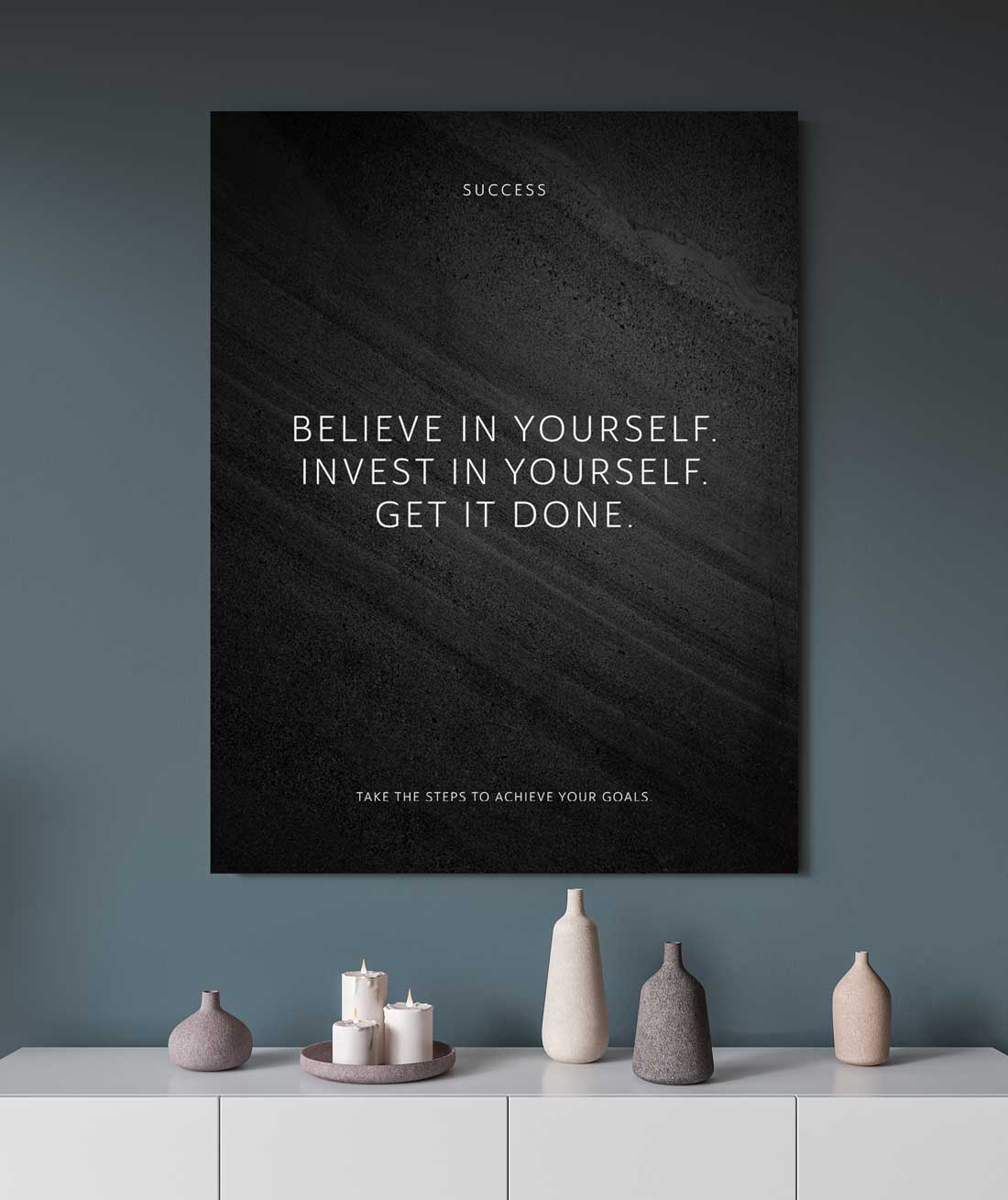Zitate zum Thema Branding und Marke
Der Chef führt, die Marke leitet!
© Karsten Kilian (Hochschule Würzburg-Schweinfurt)
Die Marke beschreibt, wofür ein Unternehmen steht, was es besonders macht – besonders erfolgreich.
Unbekannt
A brand should always keep in mind that prestige is not enough. It has to be the leader of the category, the one and only, and must give total satisfaction to its customers. Customers will not allow failure and must trust brands in order to obtain confidence from them.
© Laura Ruvalcaba and Deborah Elkes (Group Brain, Mexico)
Gute Marken sind ehrlich.
© Ferdinand Dudenhöffer (Universität Duisburg-Essen)
Marken brauchen Zeit – und schenken in der Krise wertvolle Zeit.
© Sven Reinecke (Universität St. Gallen)
We have moved from the age of the brand to the age of the retailer – a shift that has led many brands to a near-chronic state of constant stress and confusion.
© Lars Thomassen (CEO Walls)
Marken bedeuten Marge. Sie sind der Klebstoff zwischen einem Unternehmen und seinen Kunden.
© Catrin Bialek (Teamleiterin IT und Medien beim Handelsblatt)
Für die Firmen … sind Marken pures Gold.
Unbekannt
Die Markenwerbung ist der Tinnitus einer gewalttätigen Welt, in der es keine Stille gibt. Die Werbung trachtet danach zu erregen, zu provozieren, das Begehren zu sein.
Unbekannt
Marken [wirken] vor allem an einem Ort: in den Köpfen der Rezipienten.“
© Christoph Metzelder (JvM/Sports)
Der Erfolg ist Chefsache. Die Marke auch! Sie profiliert das Unternehmen und macht es profitabler.
Unbekannt
Große Gefühle sind die größte Meisterschaft. Für Marken. Und Menschen.
© Armin Jochum (Thjnk)
Marke bedeutet, es nicht allen recht machen zu wollen.
© Martin Busch (Radio Bremen)
Marken brauchen eine klare Position.
© Franz-Rudolf Esch (EBS Business School)
Ein klug gewählter Name ist immer noch das beste Startkapital.
© Armin Jochum (Thjnk)
Nichts bewegt Regierungen, Institutionen und Unternehmen mehr als die Hoheit über die eigene Marke und das eigene Image.
© Hans-Jürgen Jakobs (Chefredakteur des Handelsblatts)
Nur starken Marken können starken Schwankungen trotzen.
© Carsten Cramer (Borussia Dortmund, Vertrieb und Marketing)
Keeping a secret provides us with some kind of aura: if people say someone has an aura, then they actually mean she or he is mysterious. And the same is valid for brands.
© Hans-Bert Matoul
Eine Marke entsteht ja nicht im Kopf ihres Erfinders, sondern des Betrachters.
© Karen Heumann (Thjnk)
Local brands evoke national pride, are seen as less profit-oriented, and are often formed on deep local insights. But quality worries persist, innovation is questioned, the information can be woefully inadequate, they are sometimes seen to be opaque – and their advertising is clearly recognised as not being of a global standard. For local brands, quality, innovation and transparency are critical hills to climb.
© Miles Young (CEO Ogilvy & Mather Worldwide)
Zu einer großen Marke gehört immer auch ein großes Gefühl.
© Britta Poetzsch (Global Creative Director bei Ogilvy)
Manche Marken sind wie Freunde. Manchmal begleiten sie uns ein ganzes Leben lang.
Unbekannt
Welche Bedeutung Marken in unserem Leben haben, merkt man manchmal erst, wenn es sie nicht mehr gibt.
Unbekannt
Rabatte [führen] zum Vertrauensverlust und zur Erosion von Marken. Der Kunde ist offenbar klüger als viele Unternehmer denken. Er weiß: Rabatt ist nur ein anderes Wort für Verzweiflung.
© Gabor Steingart (Herausgeber des Handelsblatts)
Ein guter Ruf ist schnell verspielt. (über VW in China)
© Xiaofang Tan (Geschäftsführerin einer Agentur für Krisenkommunikation in China)
Konkurrenz belegt das Geschäft – und die Marke. Mit jeder Rivalität wird nicht nur der Druck, sondern auch der Wille nach kommunikativer Abgrenzung stärker. Eigentlich paradox: Mit zunehmender Rivalität steigt die eigene Einzigartigkeit!
© Christoph Metzelder (Jung von Matt/Sports)
Getting the ‚head‘ part right by communicating rational, performance-based factors isn’t enough to wed our consumers to our brand. Rational engagement is like slipping your foot inside the door to hold it ajar, and to offer this as the solution for developing and maintaining loyalty to a brand is to ignore the underlying needs of human nature. This is where emotional engagement comes in.
© Jana Bowden (Beraterin für Bowden Marketing Group)
Jeder Kontakt mit der Marke hinterlässt Spuren in den Köpfen der Menschen – bewusst oder unbewusst, strategisch geplant oder zufällig.
Unbekannt
Marken werden immer von innen zerstört.
Unbekannt
Das Thema Marke muss in den Köpfen aller Mitarbeiter sein – sonst funktioniert es nicht.
© Claus Hipp (Inhaber von Hipp)
Für einen Markenartikler … wird es immer wichtiger, sich Bühnen zu schaffen, in denen die Marke attraktiv und gut sichtbar präsentiert wird.
© Graf Anton von Faber-Castell (Inhaber von Faber-Castell)
Nur Marken, die konsequent über eine lange Zeit für bestimmte Werte stehen, werden bedeutend, haben einen festen Platz in Tagesritualen. Marken, die einen starken inneren Kompass haben, sind klar im Vorteil
© Armin Jochum (Thjnk)
Heute gibt es mehr Wisch-und-weg-Marken als echte Marken. Weil sie nicht gepflegt wurden.
© Roland Tichy (Chefredakteuer der WirtschaftsWoche)
Marken sind kultureller Beitrag der Moderne.
© Franz-Peter Falke (Präsident des Markenverbandes)
Schwache Marken machen Kundenwerbung, für starke Marken machen Kunden Werbung.
© Roland Tichy (Chefredakteur der WirtschaftsWoche)
Brands are confusing brand love with brand attention – giving people cheap gifts might keep them on the radar but it won’t grow affection for the future.
© Tiffany Kenyon (Naked Communications)
Mitarbeiter und Kunden tragen gemeinsam die Marke.
© Benedikt Erdmann (Vorstandssprecher von Soennecken eG)
The imaginative power is just another description for the difference that makes us spend money – and spend it again and again. This irrational motif drives us to buy car with a star, sneakers with a swoosh, a coffee brand with a mermaid, etc. The quality, the service is easy to copy (look at the Chinese market) – but the brand power can hardly be imitated.
© Hans-Bert Matoul
In the end, thinking of your customers‘ relationship with your products as a brand is just a model. And, like all models, it is a simplified version of reality. As long as you remember that, it’s useful.
© Brian Millar (Kreativchef bei Brand Tacticians)
In einer Welt, in der sich Produkte und Dienstleistungen immer mehr ähneln… [scheint] das einzig zuverlässige Differenzierungsmerkmal die Marke zu sein.
Unbekannt
Wachstum durch Markenvertrauen.
© Reinhard Zinkann (Geschäftsführender Gesellschafter von Miele & Cie)
Das Markenversprechen [bezieht sich] … auf alle Facetten der unternehmerischen Tätigkeit.
Unbekannt
Brands are built from within; any chief executive worth their salt knows it, but it remains an uncomfortable truth for most marketing departments. Brands, in practice, have very little to do with promises made through advertising. They’re all about promises met by employees.
© Ian Buckingham (Gründer von Bring yourself 2 work)
The countries that are brand enthusiastic tend to be from the developing world; the countries that are the least keen tend to be from the developed world. This suggests there is a life-cycle for brands. The longer consumers have lived with brands, the less likely they are to still love them.
© Guy Murphy (Planungsdirektor JWT)
Most brand strategies end up being a penetrating insight in the blatantly obvious.
© Brad Jakeman (amerikanischer Marketingexperte)
The future of brands is, in many ways, the future of business. Well-managed brands are the most efficient and effective creators of sustainable wealth.
© Richard Cordiner (Planungsdirektor Leo Burnett)
If a product is not a brand, it is a commodity. This is where brand equity demonstrates its value by translating into revenue – through increased sales driven by branding, as well as the willingness of consumers to pay a premium.
© Michael Lieberman (Gründer und Geschäftsführer von Multivariate Solutions)
Starke Marken vertragen sich nicht mit Kurzatmigkeit.
© Richard Köhler (Ehrenmitglieder der GEM)
The only leverage the manufacturer can apply to the retailer is his relationship with the consumer. And the main element in profit growth is going to have to lie in making his brand more valuable to the retailer, through its being more valuable to the consumer. And that means his brand must be unique, it must have no adequate direct substitutes – because it is in this, after all, that value lies.
© Stephen King (ehemaliger Vorstand bei JWT)
Gut gemachte Werbung zeigt Wirkung: Sie gibt Marken nicht nur Sichtbarkeit, sondern Bedeutung.
© Armin Jochum (Thjnk)
One can often trace the sources of a brand personality—here it is the advertising, there the pack, somewhere else some physical element of the product. Of course, the personality is clearest and strongest when all the elements are consistent.
© Stephen King (ehemaliger Vorstand bei JWT)
Marke ist das Symbol einer sehr persönlichen Weltanschauung, Ausdruck einer Geisteshaltung und einer Lebensart.
© Franz-Peter Falke (Präsident des Markenverbandes)
What matters is not that the advertisement should be familiar, but that the brand should be familiar. All other things being equal, a brand about which something is known is probably more likely to be chosen than a brand about which nothing is known.
© Dr Timothy Joyce (britischer Marktforscher)
On the whole, most brands have some sort of added values as relationships. Between mother and children; host and guests; host and relatives; wife and husband; housewife and family.
© Stephen King and Jeremy Bullmore (JWT)
Brand is a valuable asset of the corporation, and should be treated like any other asset. This means it must be invested in, put to work to generate value and held accountable for the results.
© Joanna Seddon (Millward Brown)
You could also say that a precious brand often has rituals associated with it. They reinforce the specialness of the brand. And of course the brand owner can help ensure those rituals are created.
© Andrew Doyle (Vorsitzender von Holmes & Marchant)
Prominent brand placement affects memory positively, but affects attitudes negatively when audiences are involved with the medium vehicle, when they like the medium vehicle, or when they become aware of a deliberate brand placement.
© Eva Van Reijmersdal (holländische Akademikerin)
The most prevalent view of advertising is that it persuades, yet there is little evidence to support this idea. There is, however, more evidence in favour of an alternative view that says brand salience is what really counts.
© Dr. Jane Leighton (Neurowissenschaftlerin)
A brand is nothing more than a story wrapped around a product or service … the reason we consistently refer to a small handful of brands is because they’re the ones that have got their stories straight.
© Richard Cordiner (Planungsdirektor Leo Burnett)
Brands have never been a more significant part of our personal and economic landscape. Understanding the real value they bring to customers and to business is even more important.
© Paul Simonet (Mitgründer von Alternative Genius)
It’s time to upgrade from propositions as our holy grail.
© Simon Law (Stratege)
Eine faszinierende Marke ist für jeden Kunden Inspiration und Einladung zugleich.
© Peter W. Hartmann (Hartmann Brand Consulting)
Starke Marken sind Legierungen aus Leistung und Emotion.
© Michael Kaiser (Kaiserkom GmbH)
Marken sind Wegbereiter in jeder Hinsicht. Mit dem steigenden Markenwert haben Sie die besten Aussichten, andere hinter sich zu lassen.
© Frank Türke (Atelier Türke Werbeagentur & Messedesign)
People are more willing to buy branded goods provided they are persuaded that they are getting value from them. And they need to be convinced of those benefits, in authentic everyday language, without being confronted by corporate-speak. Get it right, and you create a virtuous circle. Get it wrong, and you get punished for it.
© Andrew Curry (Vorstand The Futures Company)
Die Marke ist eine Geschichte und ein Versprechen!
© Christian Gessner (Adsolution GmH)
Mehr Marken-Wertschöpfung kommt von mehr Marken-Wertschätzung.
© Michael Coenen (Coenenpartner Marken-Positionierung)
Marken sind nur so gut, wie die Menschen dahinter.
© Rainer Pfuhler (rheingold salon GmbH & Co. KG)
Eine erfolgreiche Marke ist so unverwechselbar wie ein Fingerabdruck.
© Gunther Berlin (Berlin am Main MarketingKommunikation)
Namen machen Marken. Ohne Namen keine Marke. Der Markenname identifiziert, differenziert, weckt Emotionen, erzählt Geschichten, kommuniziert die Positionnierung. Starke Marken sind Kapital.
© Susanne Latour (ANONYMA – name coaching)
Ein guter Markenname ist Gold wert.
© Johannes Röhr (successidentity)
Marken sind Qualitätsversprechen im Kopf des Kunden.
© Christoph Scheufeld (designvergin)
Marken machen mehr Umsatz.
© Heiko Mehnert (connex campus GmbH)
Marke ist die emotionale Garantie der Verlässlichkeit.
© Tomasz De Crignis (Biesalski & Company)
Noch nie zuvor war es für die Unternehmen wichtiger, die Marke erlebbar zu machen und somit den Sprung in die Herzen und Handlungszentren der Konsumenten zu schaffen.
© Thomas Heinrich Musiolik
Erst die Botschaft. Dann die Werbung!
© Peter Scheer (A,S,M Werbeagentur GmbH)
Marken sind doch von gestern.
© Guido Braun (p9 consulting GmbH)
Marken müssen unterhalten, nicht beschallen.
© Michael Kramer (brand-x)
Bei starken Marken steht der Mitarbeiter im Mittelpunkt, bei schwachen Marken ist er nur ein Mittel. Punkt.
© Karsten Kilian (Hochschule Würzburg-Schweinfurt)
Marken müssen gemeinsame Werte von Unternehmen und Kunden repräsentieren.
© Uwe Claus (Leiter Marketing Concepts bei Festo)
Marke ist relevant, wenn sie berührt.
© Andreas Bauer (Director Marketing bei KUKA)
Der Vertrieb denkt und handelt (unterbewusst) markenorientiert.
© Imre Szerdahelyi (Leiter Unternehmenskommunikation bei KraussMaffei Technologies)
Marken leben von ihrer Einzigartigkeit. Wer austauschbar wird, ist in Lebensgefahr.
© Frank Dopheide (Inhaber Deutsche Markenarbeit)
The bigger a brand gets, the smaller it should act – because no one likes big.
© Andy Spade (Mitgründer Partners & Spade)
The ethics on which brands are built need to be ingrained in the business if the brand proposition is to be credible to consumers.
© Paul Gaskell (Markenstratege The Value Engineers)
A clear provenance and country of origin gives brands the distinct advantage of authenticity.
© Rosi McMurray (The Brand Union)
Wer markiert? Die Marken, die Werbung.
© Bernard Maris (Journalist bei Charlie Hebdo, wurde am 7. Januar 2015 beim Terroranschlag auf Charlie Hebdo getötet)
Perhaps the most salient factor for the most successful brands is the promise of consistent quality. Whether it’s a business or a consumer making a purchasing decision, they want to be sure in this world of endless choice that their decision is the right one.
© Rosi McMurray (The Brand Union)
A well-defined brand architecture strategy is essential in ensuring that mergers and acquisitions add shareholder and brand portfolio value.
© Martin Bishop (Landor Associates)
Unternehmen, die starke Marken führen, sind erfolgreiche Unternehmen.
Unbekannt
There is no point in retaining a brand equity if it has no traction with consumers, or has no likelihood of doing so.
© Nick Cooper (Geschäftsführer Millward Brown Optimor)
True cultural connection is the Holy Grail for brands if they want to create an enduring emotional relationship with people.
© Adam Chmielowski (Flamingo)
Predictability, it turns out, is what makes a brand fit with consumer expectations and keeps it profitable.
© Robert Passikoff (Präsident Brand Keys, Inc)
Bei allen neuen technischen Möglichkeiten geht es immer noch darum, für eine Marke eine tiefe Wahrheit herauszufiltern und die dann in eine wirklich gute Geschichte zu verpacken.
© Britta Poetzsch (Geschäftsführerin Kreation bei Serviceplan)
Wer zu spät kommt mit der digitalen Repositionerung seine Marke, den bestraft das Leben.
© Bernd Ziesemer (Publizist)
Eine Position zu besetzen heißt für Marken eben: andere bewusst aufzugeben.
©´Torben Bo Hansen (Mitinhaber Philipp und Keuntje)
Brand choices are part of the clues that define people in their own eyes and in the eyes of others. Brands are publicly shared aspects of culture. Their power derives from the shared public-ness of their various meanings.
© Judie Lannon (Redakteurin bei Market Leader)
Brand desire is the key to success.
© Peter Walshe (Account Director Millward Brown)
Unless you have absolute clarity of what your brand stands for, everything else is irrelevant.
© Mark Baynes (CMO Kellogg Co.)
Eine gute Marke ist so unverwechselbar wie ein Fingerabdruck.
© Gunter Berlin (Berlin am Main MarketingKommunikation)
Brands, at their best, are, among other things, bundles of meanings, some of them robust, some of them delicate, all of them poised to speak to one or more segments and to deliver an understanding of not just what the product does but what it means – its cultural meaning.
© Grant McCracken (amerikansicher Markenexperte und Akademiker)
Die größtmögliche Idee einer Marke ist ihre Bestimmung: die Antwort auf die Frage, wozu sie auf der Welt ist.
© Torben Bo Hansen (Philipp und Keuntje)
The brands that perform well will wrap their hands around the notion that it’s not just advertising business they’re in, but the content business, full stop.
© Kevin Kells (Google)
Kunden kaufen keine Produkte, sie kaufen Marken.
© Franz-Rudolf Esch (Gründer von ESCH)
You have to have faith that if you want people to like your brand, you have to do likeable things. There has to be some degree of trust that, if you’re an enjoyable brand, people will want to spend time with you.
© Jeff Chapman (Schick & Wilkinson Sword)
Although we think that decision-making about brands depends strongly on functional benefits, it all comes down to one question: how will this make me feel?
© Kim Cramer and Alexander Koene (BR-ND)
It became an exercise to reduce and reduce, but it makes it easier to build, and easier for people to work with.
© Sir Jonathan Ive (*1967, britischer Designer)
Nothing you communicate is done without design.
© Joachim Sauter (*1959, deutscher Mediengestalter)
Wenn Marke und Reputation nicht im Einklang stehen, sind Glaubwürdigkeit und Authentizität des betroffenen Unternehmens gefährdet.
© Hanning Kempe (Vorsitzender von Fleishman-Hillard Germany)
We all need to connect with people as individuals. I believe that in the future of marketing, experiences and ideas will become more important than ever.
© Costanza Tedesco
Simplicity, clarity, differentiation, coherence – that’s what strong branding brings to marketing.
©Costanza Tedesco
We believe that consumers are desperate for real stories about real people. That’s why we get up and come to work every morning.
© Daniel Houghton (CEO Lonely Planet)
Wir wollen Sachen erfinden, die den Leuten anfangs ungewöhnlich vorkommen – aber einige Jahre später für alle normal sind.
© Jeff Bezos (*1964, amerikanischer Unternehmer)
Um die Marke in der Wahrnehmung erfolgreich zu positionieren, braucht es ein klares Leistungsversprechen und eine starke Emotionalisierung.
© Luca de Meo (Vorstand AUDI)
Begeisterung ist ganz zentral für eine dauerhafte Markenbindung.
© Prof. Dr. Tobias Langner (Universität Wuppertal)
Jüngere Menschen haben ein großes Bedürfnis nach Authentizität. Und das können Marken aufgreifen beziehungsweise geben.
© Wolfgang Adlwarth (Strategisches Marketing, GfK Verein)
Unternehmen müssen sich noch mehr auf die Werte ihrer Produkte und Leistungen besinnen und so den Wert ihrer Marken stärken.
© Dr. Tonio Kröger (Geschäftsführer, antoni GmbH Berlin)
Software is eating the world.
© René Obermann (*1963, deutscher Manager)
Nicht die Stärksten überleben oder die Intelligentesten, sondern die am meisten bereit zum Wandel sind.
© Charles Darwin (1809 – 1882, britischer Naturforscher)
Nur eine Marke mit einer klaren, starken Idee überlebt auch wirtschaftlich schwierige Zeiten.
© Gerda Reichl-Schebesta (Vorstand im Creativ Club Austria)
Um eine Marke mit einer gestützten Markenbekanntheit von 94 % erfolgreich weiterzuentwickeln, bedarf es einer punktgenauen Strategie ebenso wie eines kreativen Feuerwerks.
© Klaus Sielker (Chef-Stratege, Hirschen Group)
Design is how it works.
© Steve Jobs (1955 – 2011, CEO von Apple)
The business and advertising landscape is undergoing one of its most fundamental changes as the mistakes and damages of the past are becoming evident. The recipe for success (and survival) is simple: Big hearts and big ideas.
© Thomas Kolster
Die entscheidende Herausforderung ist tatsächlich die kreative Idee, die Positionierung, die Markenbotschaft.
© Jean-Remy von Matt (*1952, Werbetexter)
Wir haben für Werbekampagnen schon bis zu 600 taugliche Slogans ausgedacht – bis wir den besten hatten.
© Jean-Remy von Matt, (*1952, Werbetexter)
It’s more fun to be a pirate than to join the navy.
© Steve Jobs (1955 – 2011, CEO von Apple)
You can’t just ask customers what they want and then try to give that to them. By the time you get it built, they’ll want something new.
© Steve Jobs (1955 – 2011, CEO von Apple)
Man muss viel vorsichtiger sein, was man sagt und wie man es sagt.
© Dr. Tonio Kröger (Geschäftsführer antoni GmbH Berlin)
Why are people buying? It keeps them healthy and fit and this is what people want, they want to enjoy their life.
© Herbert Hainer (*1954, deutscher Manager)
With increasing market share around the globe, it’s more important for business-to-business companies to brand themselves internationally.
© Prof. Rohit Deshpande (Harvard Business School)
Man kann fast alles weglassen, wenn das, was bleibt, von einer sehr hohen Qualität des Denkens, des Handelns und der Ausführung ist – eben die äußerste Konzentration.
© Peter Schmidt







